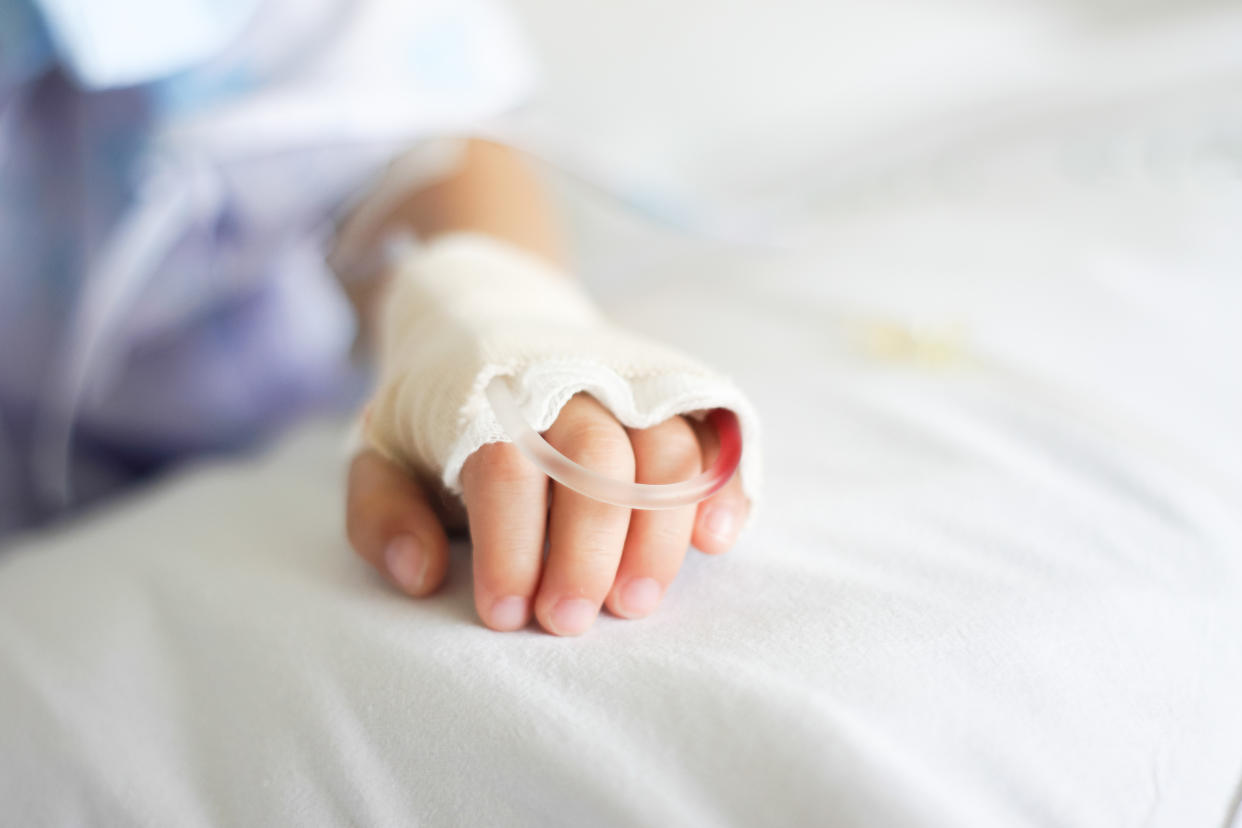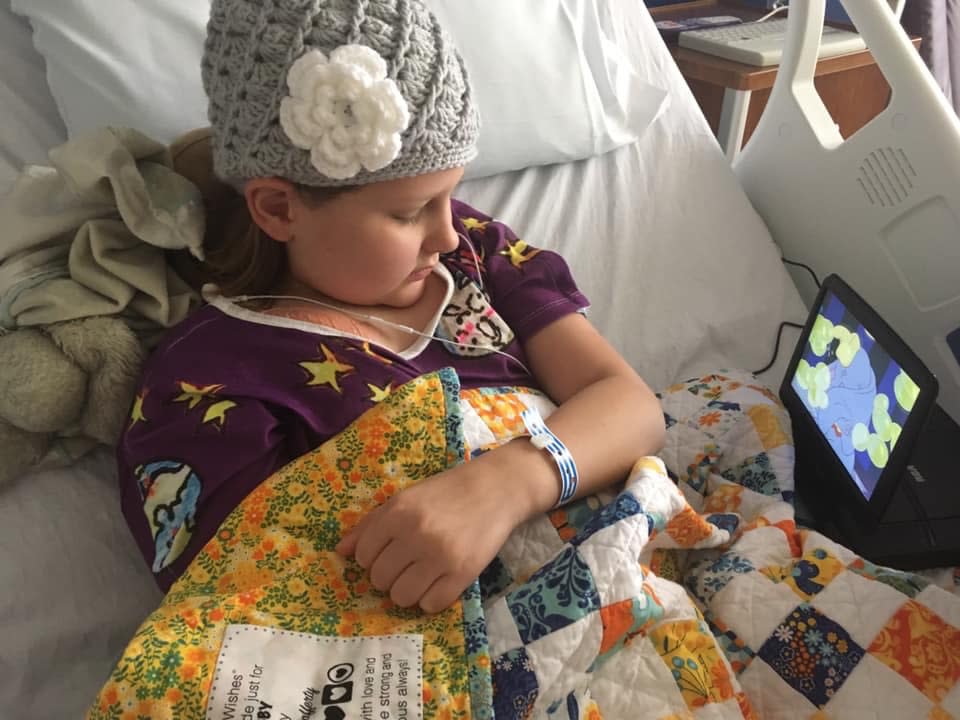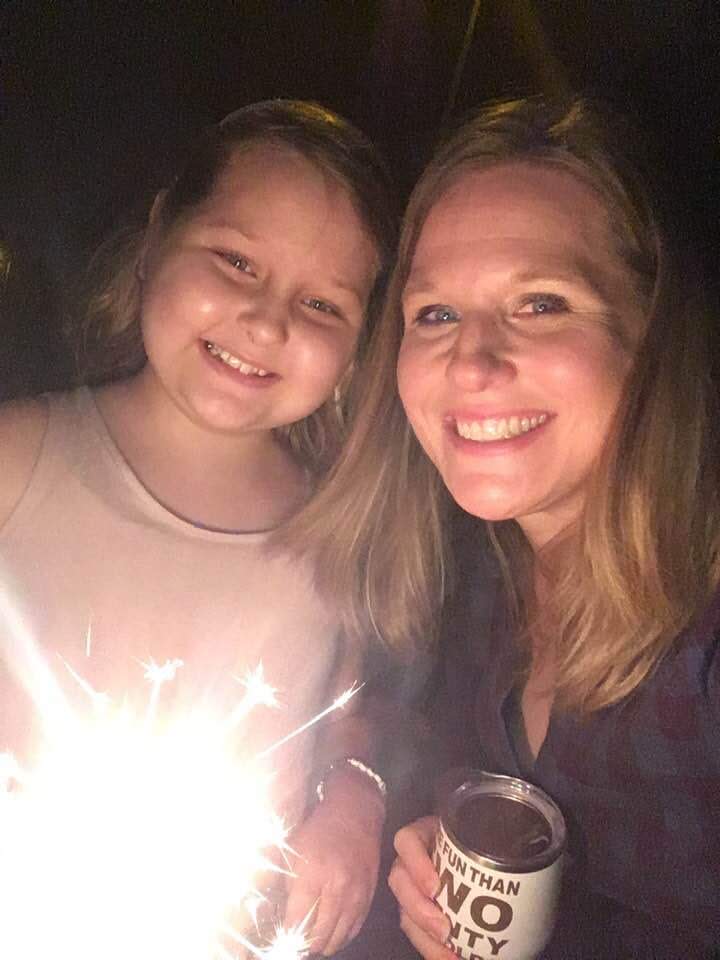How families of children with cancer cope with shortages of life-saving drugs: 'It's terrifying'

A recent shortage of the vital chemotherapy drug Vincristine, which is used to treat childhood cancers, has left families across the nation reeling.
“It’s very traumatic, because you’re still dealing with post-traumatic stress of the diagnosis,” Denisse Holguin of El Paso, Tex., whose 6-year-old son is being treated for acute lymphoblastic leukemia, tells Yahoo Lifestyle.
Holguin says she “went into a panic” after first hearing of the shortage, in a Facebook group, in mid-October. “You never know if he’ll relapse or not — that’s the concern all the time,” she says. “So, they’re always supposed to get infusions in a timely manner.”
But the chemo shortage — triggered when one of its two manufacturers, Teva, made a “business decision” to stop making the drug, and the other maker, Pfizer, was caught unaware — was neither a rare nor isolated event, according to a major report released in October by the U.S. Food & Drug Administration.
Between the years of 2009 and 2019, in fact, nine of the 11 drugs used to treat acute lymphoblastic leukemia — which is the most common childhood cancer — were in and out of shortage, says the report, which examines root causes and potential solutions of drug shortages affecting patients of all ages. Further, it notes, 86 percent of doctors say they have had to swerve away from known protocol based on what drugs were available. Such medical providers have called the recent shortage “a nightmare situation” and “devastating.”
“The shortage of Vincristine is so severe that some hospitals are on the verge of rationing the drug—having to make a Sophie’s Choice of which children will live and which ones will die,” wrote Robert Kuttner in a recent opinion piece for the American Prospect.
It is indeed a dire situation, considering that 1 in 285 children in the U.S. will be diagnosed with cancer before their 20th birthday.
“My daughter got her acute lymphoblastic leukemia diagnosis less than a year ago, on Thanksgiving weekend. In April, I learned there was such a thing as drug shortages,” Laura Bray, of Florida, tells Yahoo Lifestyle, regarding her now 10-year-old daughter, who will remain in chemo treatment until Feb. 2021.
At the start of her daughter’s treatment, Bray explains, she had an allergic reaction to a critical drug — and the one that was needed to replace it, Erwinaze, was and is in the midst of a years-long national shortage (affecting Canada, too), requiring a tough fight to keep her daughter on it.
“It’s terrifying,” Bray says of such a predicament, explaining that, right after a diagnosis, there’s a lot of discussion about protocol and timing of treatment, including reassurances from doctor to parent, who then passes those on to the child.

“You say, ‘It’s going to be hard, you’re going to lose your hair, but we’re going to follow what the doctor said,’ and it’s very difficult,” she explains. “But then, when you find out that you might be delayed from these protocols — not because of anything you’ve done, but because you can’t get access to these medicines — it’s pure powerlessness.”
Bray is now the founder of Angels for Change, a nonprofit aiming to stop shortages of life-saving drugs through advocacy and awareness. She tells Yahoo Lifestyle that the Vincristine shortage was officially ended by Pfizer — which announced on Oct. 18 that its supply should meet patient needs “throughout the rest of the year” and that it expects to “fully recover on this product by January 2020.”
Still, not enough people or medical providers across the country have been properly informed of the return of Vincristine — a well-established drug, developed in 1961, which has been credited for turning childhood cancers “from a death sentence to a category of cancer with a high cure rate." Because of that lack of communication, Bray says the problem has persisted for many families.

“Just yesterday a patient’s parent called and said, ‘We were told we were not getting Vincristine until 2020,’” she says. “So, there are still hospitals prioritizing patients [over others.]”
Three days after Pfizer declaring the shortage over, in El Paso, 9-year-old Jase Canales was told he would not be receiving his Vincristine infusion when he arrived at the hospital to be treated for his acute lymphoblastic leukemia. “I was thinking that, like, something scary would happen,” he told KFOX 14. Canales’ mom, Jessica Rivera, added, “It really just hit me hard. It’s basically, like, the bread and butter. There is no substitute.”
Jase eventually got his treatment, his mother reported on Facebook. But the delay for him and others like him brings undue stress to families who, often, are already at their breaking point.
Many parents have spent the past month taking to social media to plead for their child’s lifesaving treatments.
On Tuesday, Karen Allen, who blogs about her toddler daughter’s journey through acute lymphoblastic leukemia treatments, noted on Instagram that the shortage was still affecting the Children’s Hospital of Richmond at VCU. “The Vincristine shortage issue is still SO REAL,” she wrote. “Brynna got hers today (HUGE praise!!), but they can't guarantee she will get it again this year (and she has 2 more scheduled before the end of the year)… keep praying!!!”
Petitions — to former Vincristine manufacturer Teva, as well as to the White House — have gathered hundreds of thousands of signatures, while cancer organizations, including the national Children’s Oncology Group, have issued calls to action.
Bray, meanwhile, stresses that any parent still facing Vincristine restrictions should call her organization for support.
But even once everyone has gotten their treatment and the supply is back up to normal, she stresses, “The crisis is not over — not as long as there are single-source providers of these drugs.” It’s what’s been hampering the supply of Erwinese for years now, she adds.
Reasons for shortages are complex, according to the FDA’s report, and include rock-bottom prices for older generic drugs, a marketplace that’s unaffected by supply-and-demand basics, and various regulatory challenges.
Kuttner, who calls the Vincristine shortage “outrageous, contrived,” blames the situation, in part, on a failure of the antitrust authorities to prevent the increasing concentration of the drug industry, which “has left that industry with fewer and fewer makers of generics.” He writes that the drug has long been generic, which “means it should be cheap and plentiful, like aspirin.”
The politics of the situation can become lost on the caregivers of children fighting cancer, though, since, as Bray says, “As a parent, you’re in charge of your child’s hope, of making these decisions for them — and of answering difficult questions like, ‘Mommy, am I going to die if I don’t get my medicine?”
Read more from Yahoo Lifestyle:
Grieving mom defends decorating son’s grave with plastic skeleton for Halloween
The breast cancer nobody wants to talk about: ‘If I don’t find something that works, I will die’
Follow us on Instagram, Facebook and Twitter for nonstop inspiration delivered fresh to your feed, every day.

